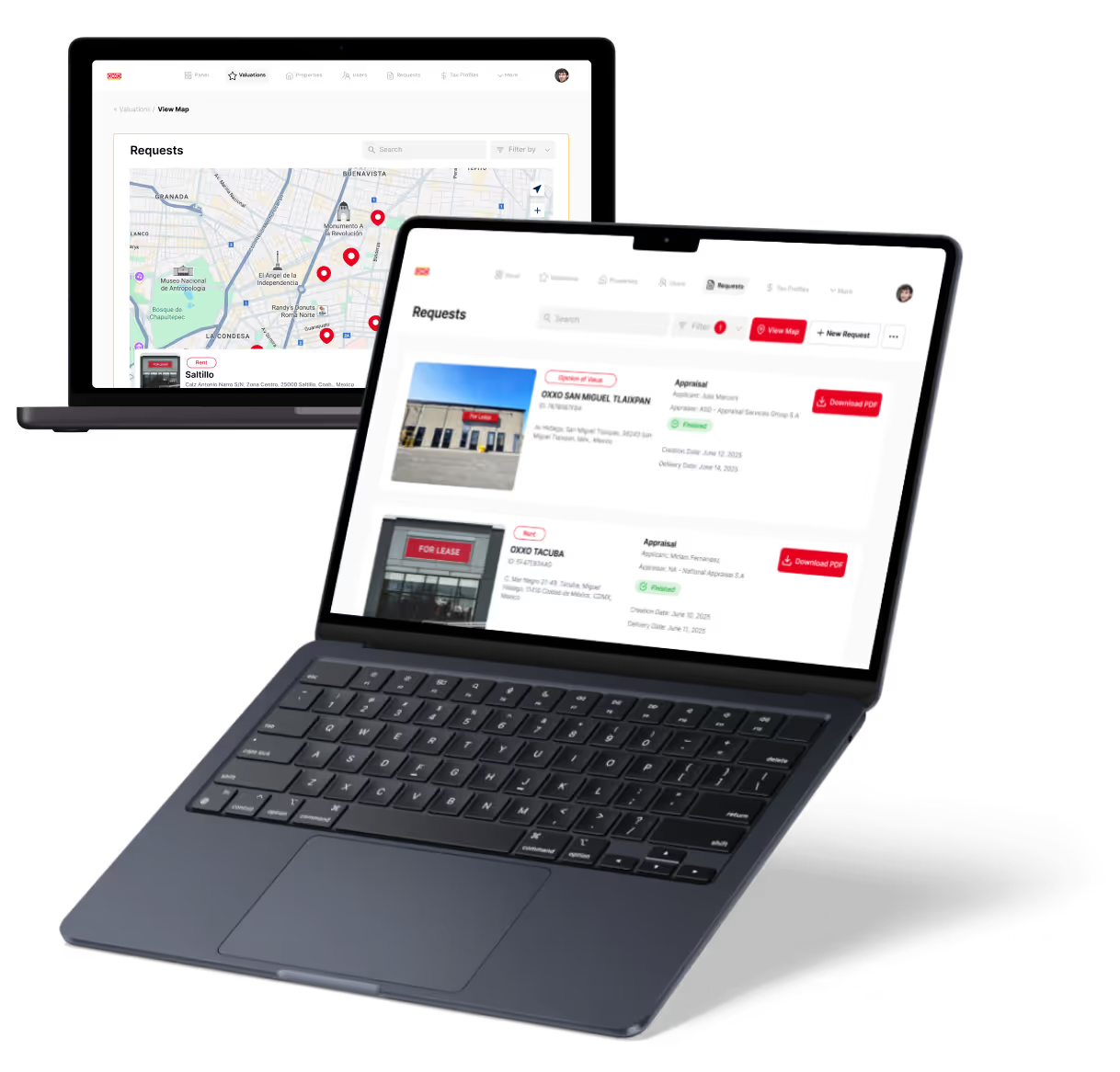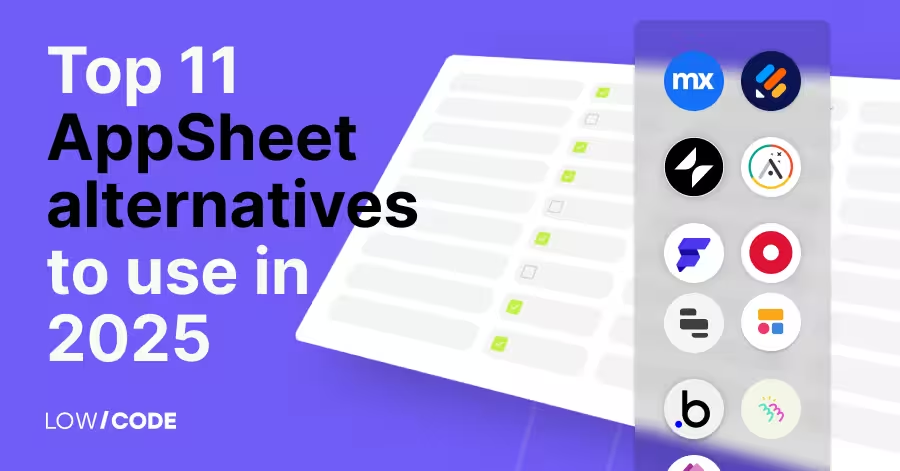Airtable vs Monday.com: 10 Factors to Decide the Best One
22 min
read
Compare Airtable vs Monday across 10 key factors like design, automation, collaboration, and pricing to find the best tool for your team

Choosing between Airtable and Monday isn't just about features—it's about how your team operates. Airtable is used by over 300,000 organizations to organize data and create internal tools, while Monday supports over 180,000 teams with its visual project tracking and collaboration features.
Both platforms aim to boost productivity, but they excel in different areas. Airtable combines the simplicity of spreadsheets with the power of databases, making it great for creating flexible workflows and managing structured information. Monday emphasizes visual clarity, making it ideal for tracking tasks, timelines, and team workloads.
In this guide, we compare Airtable and Monday across 10 key factors like ease of use, automation, scalability, integrations, and more, so you can confidently choose the tool that fits your workflow, goals, and your team's way of working.
Quick Comparison Table - Airtable vs. Monday.com
1. What’s the core difference between Airtable vs Monday.com?
The core difference between Airtable and Monday lies in how they manage data and workflows.
Airtable is a flexible database tool with the simplicity of a spreadsheet and the power of a relational database. It’s built for teams that want to organize data, link records, and build custom apps or workflows around that data. It’s especially strong in content planning, inventory, and project tracking.
Monday, on the other hand, is a full project and work management platform. It focuses on task tracking, team collaboration, timelines, and automation. While it also offers database-like features, its strength lies in visualizing and managing workflows across teams.
In short, Airtable is better for data organization and building internal tools, while Monday is ideal for managing projects, teams, and day-to-day work execution. Your choice depends on whether your focus is structured data or collaborative workflows.
2. Use Case Suitability
Both Airtable and Monday are powerful, but each is built for a different kind of work. Let’s explore which one suits your goals better.
Is Airtable better for data organization and database apps?
Yes, Airtable is ideal for organizing structured data and building lightweight internal tools. It works like a spreadsheet but functions as a database, allowing you to link records, set up relationships, and view data in grids, calendars, galleries, or kanban boards. It’s perfect for teams managing content calendars, inventories, CRMs, or custom workflows.
With tools like Airtable Apps and Interfaces, you can build internal tools or dashboards without code. If your focus is flexible data handling and custom solutions, Airtable gives you the structure and freedom to build around your data.
Is Monday better for project and task management?
Absolutely. Monday is built to streamline project planning, task tracking, and team collaboration. It’s perfect for managing work across teams with features like visual timelines, workload views, dependencies, and status updates. You can create workflows for marketing campaigns, product roadmaps, HR pipelines, and more.
The platform supports automation, integrations, and dashboards that help teams stay aligned. While it offers some data tracking features, its strength lies in making collaboration around tasks simple and visible. If your goal is to manage projects and keep teams organized, Monday is the better choice.
Read more about:
3. Ease of Use
If you’re new to workflow tools, ease of use can make or break your experience. Let’s see which platform is more user-friendly.
How easy is it to get started with Airtable?
Airtable offers a familiar spreadsheet-like interface that makes it easy for beginners to dive in. You can start by using templates for content calendars, CRMs, or task lists and customize them as you go. It also allows you to switch between different views like grid, kanban, or calendar without much setup.
However, features like linking records or creating relational databases may require some learning. Overall, Airtable is beginner-friendly for basic use but gets more powerful (and complex) as you dig deeper into custom workflows and automations.
Is Monday simple to set up and manage for teams?
Yes, Monday is designed to be easy for teams to get started without training. It uses color-coded boards, drag-and-drop elements, and templates for common workflows like project planning, bug tracking, and hiring pipelines. The setup is fast, and team members can quickly update statuses, assign tasks, and view timelines.
The interface is clean, visual, and built to reduce confusion. Even without technical skills, users can automate actions or create dashboards with just a few clicks. If your team values simplicity and fast onboarding, Monday is easier to pick up and manage daily.
4. Design Flexibility and Customization
The ability to customize how your work looks and functions can improve clarity and productivity. Here's how Airtable and Monday compare.
Can you customize views and fields in Airtable?
Yes, Airtable offers a high level of customization. You can create custom fields such as attachments, checkboxes, dropdowns, and linked records. Views can be tailored to your workflow—choose from grid, calendar, gallery, kanban, or timeline. You can also filter, group, and sort data to see exactly what matters.
With Airtable Interfaces, you can design custom layouts for different roles or use cases without affecting the underlying data. This flexibility makes Airtable a great option for teams that want to shape their tools around the way they work.
How much layout and board control does Monday offer?
Monday gives you strong control over board layouts and workflows. You can choose between views like table, kanban, calendar, timeline, or workload. Each board is fully customizable with columns for status, people, dates, numbers, and more. You can rearrange items, create dependencies, and color-code workflows to fit your process.
While Monday doesn't offer the same depth of relational database structuring as Airtable, its strength lies in visual clarity and flexibility for managing team activity. It's great for teams that want easy-to-follow layouts and real-time collaboration.
5. Workflow Automation and Logic Customization
Automating routine tasks can save time and reduce human error. Let’s look at how Airtable and Monday help streamline your workflows.
What automation features does Airtable offer?
Airtable includes built-in automation tools that allow you to trigger actions when specific conditions are met. You can automate tasks like sending emails, updating records, or posting messages to Slack. Automations can be created using a simple “when this happens, do that” logic.
Airtable also supports webhooks and integrates with services like Zapier, Make, and custom scripts via its scripting block. While it’s not a full logic engine, it provides enough automation power for most data-driven workflows, especially when combined with its relational structure and external integrations.
How does Monday handle workflows and triggers?
Monday offers robust automation through its visual automation builder. You can create triggers like “when status changes to done, notify manager” or “when date arrives, move item to group.” These automations are easy to set up and don’t require coding. Monday also integrates with tools like Slack, Gmail, Teams, and Zoom to extend your workflow beyond the platform.
Advanced users can use Monday’s API and webhook support to build more complex logic. For teams that want fast, intuitive automation without technical setup, Monday makes workflow building very approachable.
Read more about:
6. Data Integration and Management
Connecting your tools and managing data effectively is key to building a smooth workflow. Here's how Airtable and Monday handle integrations.
What databases, forms, or tools does Airtable connect with?
Airtable integrates well with a variety of tools and services. It offers native integrations with Google Drive, Slack, Outlook, and more, plus deeper connectivity through Zapier, Make, and custom APIs. You can also collect data using Airtable Forms, which directly feed into your tables.
Its robust API allows developers to build powerful extensions and connect to databases or custom systems. Whether you're managing CRM data, project tracking, or inventory, Airtable lets you centralize everything in one place and keep it connected to your broader tech stack.
Does Monday support third-party integrations and APIs?
Yes, Monday supports a wide range of third-party integrations. You can connect it to tools like Google Workspace, Slack, Microsoft Teams, Zoom, and more using built-in integration recipes. Monday also has a public API, allowing developers to create custom integrations or sync with internal systems.
The platform supports automation through external tools like Zapier and Make as well. This makes it easy to keep Monday in sync with your emails, calendars, communication tools, or other data sources. It's ideal for teams looking to tie their project management into a broader workflow ecosystem.
7. Collaboration and Team Communication
Smooth collaboration is essential for productivity, especially in fast-moving teams. Let’s see how Airtable and Monday support teamwork and communication.
How does Airtable support real-time collaboration?
Airtable allows multiple team members to work on the same base in real time. You can @mention teammates in comments, assign tasks using collaborator fields, and share views or forms externally. Changes are synced instantly, and revision history helps track updates across records.
While Airtable doesn’t have built-in chat or deep communication tools, it integrates with platforms like Slack and Microsoft Teams to keep conversations flowing. For teams focused on data collaboration and centralized content, Airtable provides a clean and flexible way to work together without losing control of the data structure.
What team features are included in Monday?
Monday is designed with team collaboration in mind. You can assign tasks, leave updates or comments on any item, and @mention teammates for quick responses. The platform also includes team dashboards, workload views, and shared timelines to keep everyone aligned. Notifications and reminders help teams stay on track, and built-in integrations with Slack, Zoom, and Teams keep communication centralized.
Monday is especially strong in making teamwork visible—whether you're planning a sprint, tracking progress, or managing approvals. It’s a great option for teams that rely on structured workflows and need clear, ongoing communication.
Read more about:
8. Scalability and Performance
As your team or data grows, your platform should keep up. Here's how Airtable and Monday handle performance and scaling.
Can Airtable scale for large datasets and complex use cases?
Airtable can handle moderately large datasets and works well for teams managing structured workflows. However, each base has row and attachment limits depending on your plan. While it’s powerful for content management, CRM, or inventory tracking, it may slow down or require workarounds for enterprise-level use cases with massive volumes of data.
That said, features like Interfaces, Automations, and custom scripts extend its capability significantly. With proper structure and plan upgrades, Airtable is scalable for most business operations, but it’s not built for heavy-duty relational data processing like a traditional database.
Is Monday reliable for growing project teams?
Yes, Monday is designed to scale with teams of all sizes, from small startups to large enterprises. It offers unlimited boards, customizable workflows, and advanced permissions to support growing teams. Performance remains stable as more users and items are added, and enterprise plans include audit logs, advanced security, and admin controls.
Monday’s automation and integration features scale well too, helping teams streamline complex operations. Whether you’re managing multiple departments or expanding into new markets, Monday is a reliable platform for organizing and tracking work across your organization.
9. Limitations of Each Platform
No tool is perfect. Understanding each platform’s limitations will help you choose the one that fits your needs best.
What are the main drawbacks of using Airtable?
Airtable is powerful, but it has limits. Bases have row and attachment caps depending on the pricing plan, which can restrict larger datasets. While great for structured data, Airtable isn’t ideal for complex project management without custom setup. Its reporting and dashboard features are also limited compared to dedicated BI tools.
You may need to rely on third-party tools like Zapier or Make for advanced automation. For teams needing detailed time tracking, workload management, or native collaboration features, Airtable may require extra integrations to fill those gaps.
What limitations should you consider with Monday?
Monday is excellent for project tracking, but it has a few limitations. Its database features aren’t as flexible as Airtable’s, making it less suitable for complex data relationships. While it’s visually intuitive, building deeply customized workflows can be challenging without relying on automations or third-party tools.
Over time, boards can become cluttered, especially for large teams managing multiple workflows. Some advanced features like time tracking, integrations, and automation usage are gated behind higher-tier plans. If your work relies heavily on structured data or backend logic, Monday may feel limiting.
Read more about:
10. When to Choose Each Tool
Both Airtable and Monday are great—but the right choice depends on your team’s goals and how you work. Here’s when to choose each.
When should you use Airtable instead of Monday?
Choose Airtable when your work revolves around organizing complex data, linking records, and building internal tools or custom workflows. It’s ideal for teams managing structured information like content calendars, inventory, CRM data, or research projects. Airtable offers flexibility to build lightweight apps, dashboards, and automation layers around your data.
If you value spreadsheet-like familiarity with database power and want to design tools around your processes, Airtable is the better choice. It’s also a solid option when you need to quickly prototype or adapt workflows without deep development knowledge.
When is Monday a better choice than Airtable?
Monday is the better choice when your focus is managing projects, tracking tasks, and improving team collaboration. It’s designed for visibility and communication, making it easy to track progress, assign work, and automate updates.
If your team juggles multiple projects or departments and needs real-time status updates, timelines, and workload views, Monday shines. It’s especially useful for marketing, product, HR, and operations teams that rely on shared boards and repeatable workflows. For growing teams that prioritize structure, transparency, and coordination, Monday delivers a smoother project management experience.
Created on
May 23, 2025
. Last updated on
July 7, 2025
.

FAQs
Can Airtable be used for project management like Monday?
Which tool has better templates for teams?
Does Monday support database-style functionality?
Can I integrate Airtable or Monday with Slack, Google Docs, or Notion?
Which platform is better for remote team workflows?







%20(Custom).avif)







.avif)
